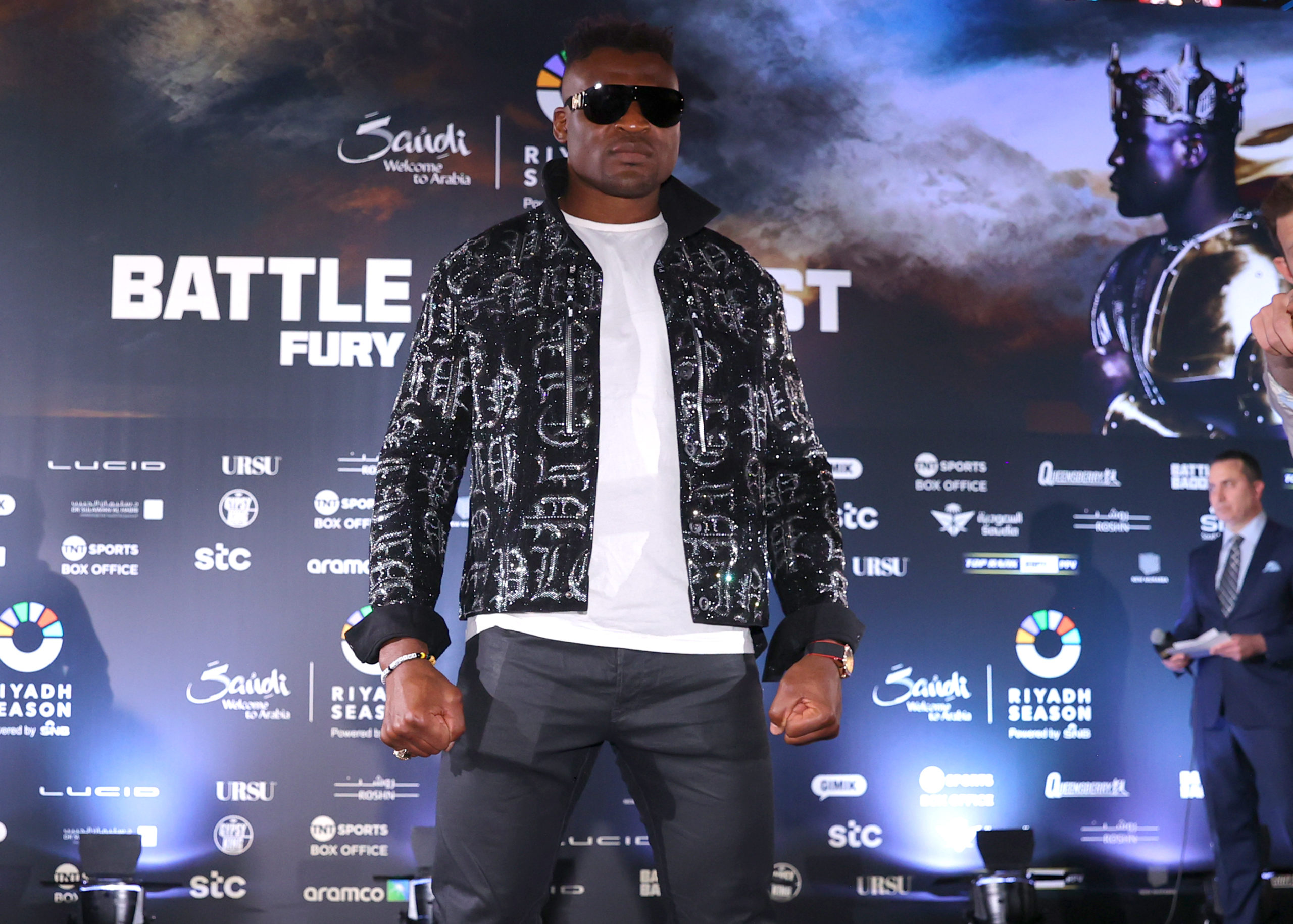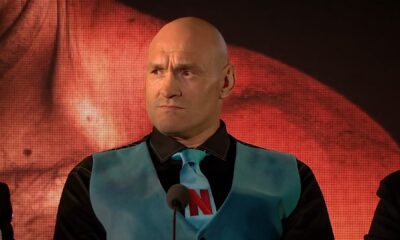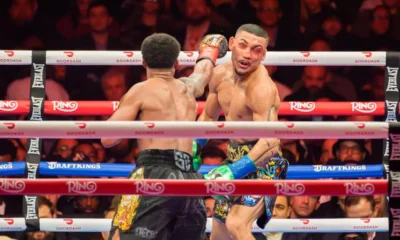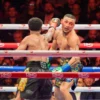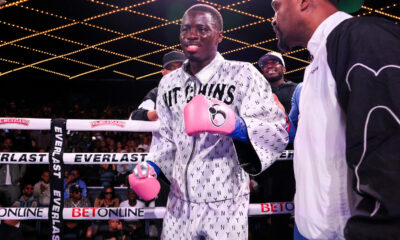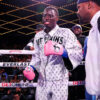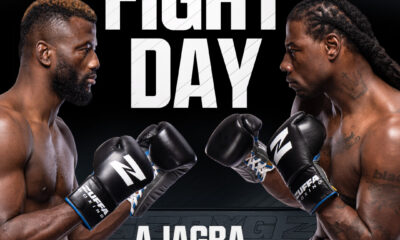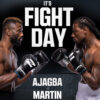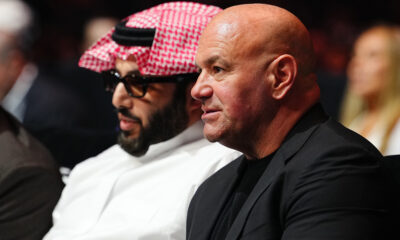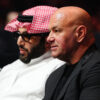Stay In Your Lane- Rademacher, Ngannou And Opportunity In Turbulence
(This commentary is provided from David Payne in the U.K. and more of his great content is found at www.boxingwriter.co.uk)
In retirement, Pete Rademacher, a pioneering spirit who boxed for the heavyweight title in his first professional bout, helped to invent a divider for swimming pools that reduced turbulence between lanes. The idea being that each competitor could optimise their own performance unhindered by the wake created by a rival carving through the water in an adjacent lane.
Tyson Fury, boxing’s number one big man, fights Francis Ngannou, the once preeminent heavyweight in Mixed Martial Arts, on Saturday in Saudi Arabia. A curiosity solicited on the turbulence the latter’s ‘crossing of lanes’ proposes to create and reliant on the resulting voyeurism of the lucrative mainstream market.
Who was Pete Rademacher?
Rademacher’s invention, one of several patents he contributed to, was used for the first time in the 1976 Olympics in Montreal, two decades on from the American’s dominant run to the Gold medal in the heavyweight division and his audacious self-made 1957 match-up with Floyd Patterson. Incredulously, Rademacher floored the Champion in the second round but would eventually succumb to a 7th knockdown, in the 7th. Patterson’s trainer, Cus D’Amato, was one of many who would compliment the farmer’s son from Yakima Valley on his performance.
The chasm that yawned between the pair was nevertheless conspicuous despite Rademacher’s outstanding Amateur credentials.
It had taken $250,000 to convince D’Amato to accept the fight for Patterson, an asset he was keen to capitalise on behalf of ahead of the return of Sonny Liston – who was suspended through the balance of 1957 following a prison term for assaulting a police officer – and undeniably the most dangerous contender of the time.
Money talked then, as it does now.
Tyson Fury should be fighting Oleksander Usyk, as far as should is the imperative of boxing, her conventions and the virtues proposed by the long history on which Fury’s riches are piled. He isn’t. He could beyond Saturday, perhaps as early as December, perhaps February, or May. He may not ever fight the Ukrainian. Or Anthony Joshua. Little is straightforward in boxing and the futility of speculating on Fury’s plans or perceived obligations further exaggerates that uncertainty.
Fury, for all his knowledge of boxing’s past, the respect he holds for his predecessors, and the parable of the prodigal philanthropist he projects, is interested only in the eternal need to distract himself from the banality of life and the accumulation of money. The latter often sated by attractions far from the ideals held by boxing’s more ardent hostages.
On Saturday night, D’Amato’s most famous student and the inspiration for Fury’s given name, Mike Tyson, will be pawing at the easy money being distributed and act in satellite to the challenger’s corner as debutant Francis Ngannou attempts the impossible; to beat the Heavyweight Champion. An extraordinary custodian of the crown he is too. Not only is this Ngannou’s first professional boxing match – it is his first boxing match ever – and he faces a man who would’ve been a difficult night’s work for every heavyweight in history. Even Sonny or Mike.
Fury will again earn tens of millions for negligible risk. It is easy to suspect Fury is earning eye watering sums simply to shed the excess weight he’s gained in an inactive year ahead of a proper camp for Usyk.
Echoes of Rademacher’s ambition there may be, he lost too after all, but the yawning chasm of ‘57 is but a small leap compared to the oceans of advantage Fury holds over Ngannou in ‘23. Patterson, as good, quick and precise as he often proved, was smaller than Rademacher.
Why Fury Is Overwhelmingly Favored
Fury will be taller, have longer reach and outweigh Ngannou too. Patterson had been floored before and would visit the canvas on more occasions during his career than any other heavyweight champion in the gloved era.
Fury has hit the canvas previously. Most dramatically in his trio of fights with Deontay Wilder and lesser punchers have breached his defences. But he is entirely less vulnerable than Patterson was.
All who had success against Fury had had years of boxing training and scores of professional and amateur rounds behind them. The fundamental difference between Ngannou and his forerunner is the most telling of all – Rademacher was an Olympic Champion – and therefore a seasoned boxer. Fighting for the title on debut is as ludicrous now as it was then. In 1957 it was a calculated gamble by a man with boxing acumen, sharp wit, size advantage and a keen eye for an opportunity.
It was two years in the making. Ngannou has demonstrated his own vision in securing this fight, a career high purse by perhaps a multiple of 10, maybe even 20, but there is no credibility in his suitability for the task, Every window in to his training camps drains whatever flimsy faith the partisans and promoters suggest. They appear ignorant of the depth of the ‘deep end’ in to which Ngannou will be plunged on Saturday. But they are not.
Sports Illustrated, like much of the media of the time, were enthralled by the Patterson versus Rademacher fight and composed a comprehensive feature to introduce the event. Any suggestion the writer may have succumbed to the notion Rademacher could perform the miracle, subliminally absorbed through proximity to the subject or the challenger’s charismatic entrepreneurial spirit, was eviscerated by the review Kane wrote of the preparatory sparring he’d witnessed.
“But Rademacher in training, unless he was under wraps, has looked much too slow to handle Patterson, who has the hand speed of a middleweight. Rademacher’s combinations are few and slow, his jab seems weak and his footwork is plodding and uncertain.”
Martin Kane writing in August 1957 for Sports Illustrated
Francis Ngannou did an open training session in Saudi Arabia tonight. Footage survives for the morbidly curious.
Were Kane still punching the typewriter keys, the former Editor of Sports Illustrated passed away in the February that followed those ‘76 Montreal Games, he would’ve surely crafted an even more withering summary of Ngannou’s ability than the one he afforded Rademacher.
Because the truth is; Ngannou cannot box. On Sunday he still won’t be able to box, but he’ll be richer than he would’ve been spending two lifetimes in UFC.
This conclusion is not new, the cynicism contained will also not trouble anyone in Saudi Arabia connected to the event.
Nor will it make waves.
David has been writing about boxing, sport’s oldest showgirl, for almost twenty years. Appearing as a columnist and reporter across print and digital as well as guest appearances with LoveSportRadio and LBC in the UK and, of course, The Big Fight Weekend podcast. Find his unique take on the boxing business here and at his site; www.boxingwriter.co.uk


